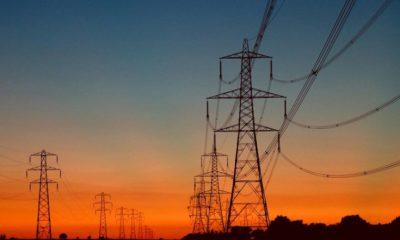Published
7 months agoon
By
taryn
Recent data reveals that the average electricity consumption for South African households is significantly lower than Eskom’s claimed figure of 30 kWh per day. This discrepancy raises important questions about the power utility’s proposed “cost-reflective” electricity tariff reforms.
For years, Eskom has maintained that households consume 30 kWh daily, despite significant changes in electricity usage and population numbers. However, various reputable sources provide a different perspective.
For instance, the U.S. Energy Information Administration (EIA) reported in 2021 that South Africa’s electricity consumption per capita was approximately 3,218 kWh per year, averaging about 8.8 kWh per day. With an average household size of 3.4 people, this equates to about 29.92 kWh per household.
While this figure seems close to Eskom’s claim, it is misleading. The per capita analysis considers total electricity sales, including demand from large power users like factories and mines, which account for the majority of electricity consumption in South Africa. Residential users only make up about 19% to 22% of total electricity use.
Based on this data, the actual daily consumption for households in 2021 would have ranged from approximately 5.68 kWh to 6.58 kWh.
Solar power companies have differing estimates for household consumption. For example, EcoFlow suggests an average of 7 kWh per day, while PowerNSun claims urban customers average around 15 kWh per day. Notably, all these estimates remain lower than Eskom’s 30 kWh figure.
To further contextualize these figures, the UK’s energy regulator, Ofgem, estimates the average household there consumes about 2,900 kWh per year, or approximately 8 kWh per day—again, significantly lower than Eskom’s claims.
MyBroadband recently calculated updated average household consumption figures using recent Eskom data and South African population statistics. From January 1 to October 13, 2024, Eskom recorded a total electricity demand of 158,380 GWh. Between 30,177.7 GWh and 34,943 GWh of this total was consumed by households.
According to Statistics South Africa’s General Household Survey for 2023, there are around 19 million households, with about 89.9% having access to electricity, totaling approximately 17.08 million households. These households would have consumed between 1,767 kWh and 2,046 kWh in just over nine months, translating to an average of about 6 kWh to 7 kWh per day—far below Eskom’s claims.

Eskom’s use of inflated consumption figures impacts its tariff policies. The utility has proposed higher fixed tariffs and lower variable energy charges, arguing that this is necessary for more “cost-reflective” pricing. However, this plan could disproportionately increase bills for lower-consumption households while decreasing costs for higher-consumption users.
Eskom has repeatedly stated that its tariff changes would lower average bills for residential customers. However, this claim is questionable when considering the actual average consumption figures. MyBroadband’s analysis indicates that households consuming 185 kWh per month could face an 82% increase in their electricity bills, while those using 214 kWh would see a 72% increase.
As Eskom continues to advocate for these changes, it is crucial for consumers to critically evaluate the utility’s claims and their implications for household budgets.


Eskom Turns to Foreign Utilities as Skilled Worker Shortage Cripples Power Plants


Why Load Shedding Still Happens in Joburg (2025)


Eskom Maintains Stage 2 Load Shedding During Evening Peaks


Eskom Implements Stage 2 Load Shedding Amid Delays and Breakdowns


Who Supplies Electricity in Johannesburg: City Power or Eskom?


Private Power Breakthrough: Nersa Clears the Way for More Renewable Energy in South Africa















